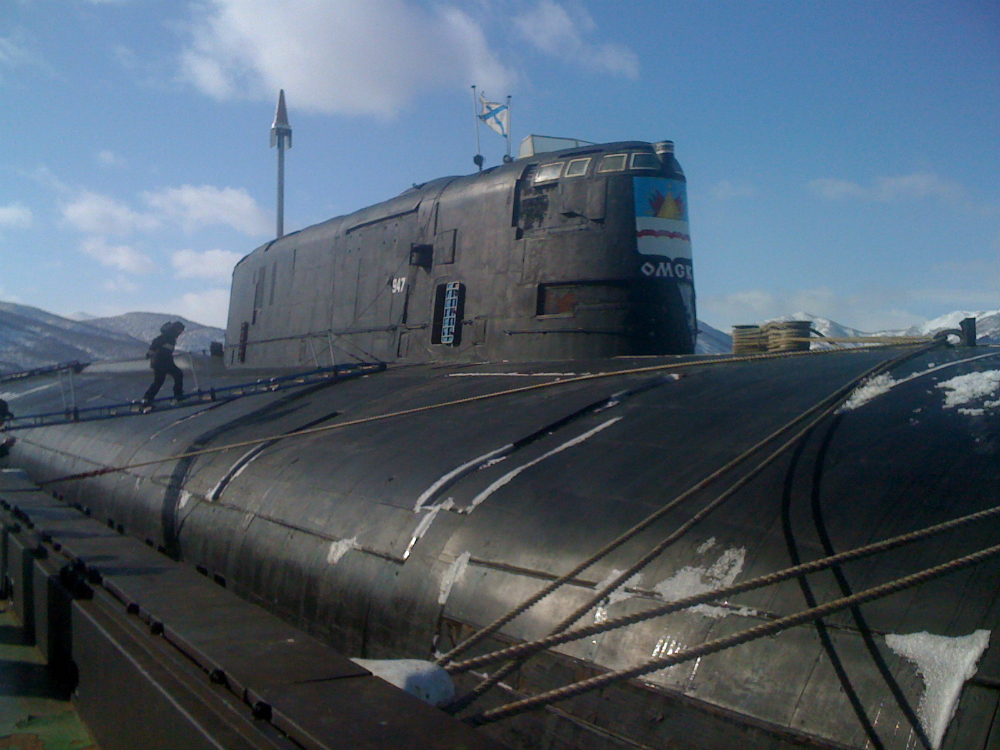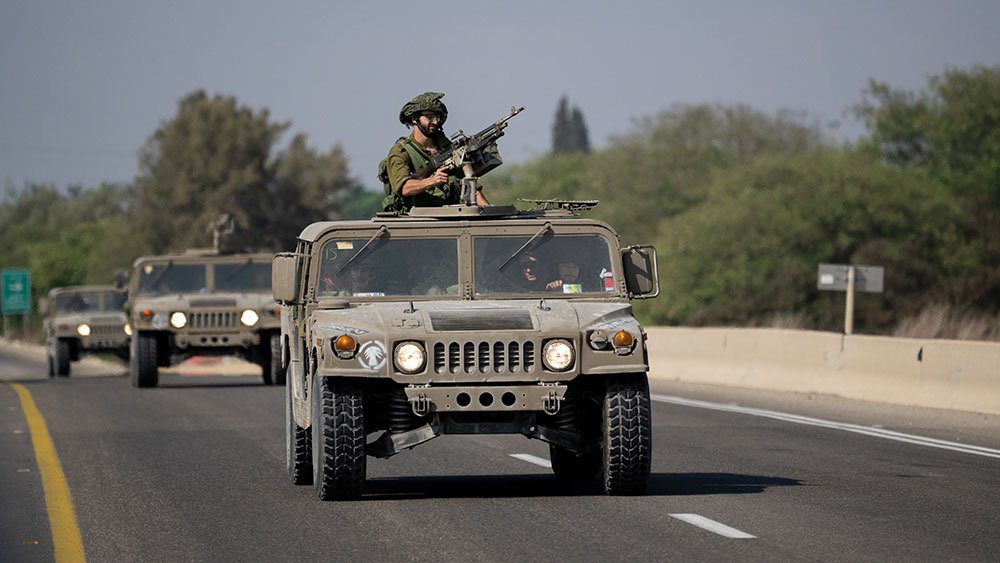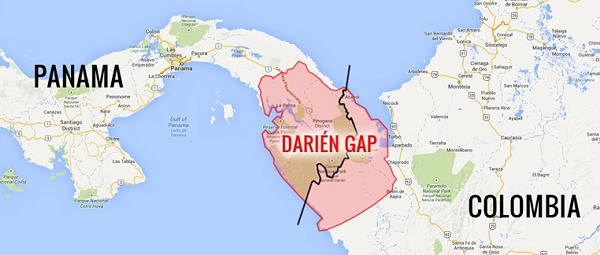Kyiv demands the West supply submarines to boost Black Sea defenses against Moscow
07/15/2024 / By Belle Carter

Following a barrage of military augmentation requests from the West, Ukraine heightened its demands as it now wants allies to supply submarines to bolster its military capabilities in the Black Sea, become a maritime power and beat the Russian Navy.
Navy Chief Admiral Aleksey Neizhpapa, who announced the request to NATO and Western allies, argued that deploying underwater craft could strategically improve Ukraine’s position across the Black Sea during the conflict with Russia. The head of the Ukrainian navy is convinced that Ukraine will not be able to achieve a “military victory” on the Black Sea without submarines, therefore, he calls on Western partners to meet this strategic need as soon as possible.
He emphasizes that large submarines are useless in this region, given the local geographical conditions. However, in his opinion, small underwater vessels are necessary so that the Ukrainian Navy can “disperse,” expanding the field of activity against the naval and coastal positions of the Russian Federation.
“We are thinking about it, submarines are necessary for us, they should be part of the navy,” Neizhpapa said in an interview with journalist Natalya Moseychuk that was posted on her YouTube channel on Saturday. “Locating only near Odesa means having nothing, we should look further, spread the fleet throughout the Black Sea and use its entire area.”
Since 2022, the Ukrainian Navy has been heavily attacked by Russia and there is practically nothing left of this type of armed forces. Kyiv occasionally reportedly manages to damage Russia’s naval positions in the Black Sea, claiming to have sunk several Russian warships. These incidents were excitedly picked up and magnified by the Western propaganda media. However, these actions can be attributed to NATO’s assistance, mainly American and British drones and satellites.
Since the Russia-Ukraine conflict erupted in February 2022, Western states have supplied vast quantities of weapons to Kyiv. But they, including the Biden administration, are washing hands while denying direct involvement in the attacks despite continuously sending war ammunition to the country.
Eagle-eyed citizens have been condemning the act which may have caused the governments to back down a little with the support they are sending to Kyiv. Earlier this week, Ukrainian President Volodymyr Zelensky said in an interview with Bloomberg that the U.S. weapons were taking too long to reach the country, despite Congress approving a $61 billion assistance package in April. NATO diplomats told the agency that the U.S.-led military bloc had agreed to provide at least $43 billion (€40 billion) in military aid for Ukraine per year, without specifying how long the aid would continue.
Moscow defeats Western precision munitions in Ukraine within weeks
Meanwhile, the West’s “cutting-edge” technology weaponry being sent to Ukraine may have given them an advantage over Russia, but it did not last.
Within weeks, the Russian army started to adapt, using its formidable electronic warfare capabilities. Russian President Vladimir Putin’s troops were able to figure out how to beat the Excalibur artillery round. Guided by GPS, the shells hit Russian tanks and artillery with surgical precision, as drones overhead filmed the resulting fireballs when it was introduced into the Ukrainian battlefield in the summer of 2022.
However, the Russians managed to interfere with the GPS guidance and fuses, so that the shells would either go astray, fail to detonate, or both. According to Ukrainian commanders, the M982 Excalibur munitions, developed by RTX and BAE Systems, became essentially useless and were no longer employed by the middle of this year.
Several other weapons have encountered a similar fate. Russian electronic countermeasures have also beaten the precision of GPS-guided missiles fired by HIMARS systems. The new Ground-Launched Small Diameter Bomb munition, manufactured by Boeing and Sweden’s Saab, has also failed because of Russian electronic warfare. It is no longer in use in Ukraine pending an overhaul, Ukrainian and Western officials said. The U.S. Department of Defense declined to discuss the performance of specific U.S. weapons systems, citing operational security.
“We should assume that adaptation will always occur and the Russians have adapted to a variety of things,” said Rob Lee, a senior fellow at the Foreign Policy Research Institute. “The capabilities will be most effective immediately after they are introduced and adversaries will develop countermeasures over time.”
Ukraine’s deputy minister of strategic industries Anna Gvozdiar said she was frustrated by the inability of some Western manufacturers to adapt. “We learn faster because we are on the front line, we have to make decisions to survive,” she said.
When it comes to Ukrainian-made weapons like drones, models that worked just a few months earlier are no longer efficient on the battlefield because of the constantly evolving technology, said a Ukrainian intelligence official. “It’s like updating software on your phone, we and the Russians have to do it every month, to keep up,” the official said. “But when we get weapons from the West, the manufacturer put in its software many years ago, and rarely wants to change anything.”
A U.S. defense official said that the Pentagon is “very aware” of the continuously evolving electronic-warfare threat posed by Russia in Ukraine and has worked closely with Ukraine and defense industry partners to rapidly address threats and ensure that American precision weapons remain effective in a very complex electronic-warfare environment. (Related: CORRUPT Pentagon fails to account for $62M in U.S. weapons aid to Ukraine.)
Head over to UkraineWitness.com to read more updates on the escalating war between Russia and Ukraine.
Sources for this article include:
Submit a correction >>
Tagged Under:
Aleksey Neizhpapa, big government, Black Sea, chaos, conflict, GPS, HIMARS, military tech, NATO, Navy, operational security, Pentagon, pre-World War III, Russia, Russia-Ukraine war, submarines, Ukraine, Volodymyr Zelensky, weapons, weapons tech, west, World War III, WWIII
This article may contain statements that reflect the opinion of the author
RECENT NEWS & ARTICLES
COPYRIGHT © 2017 NATIONAL SECURITY NEWS





















